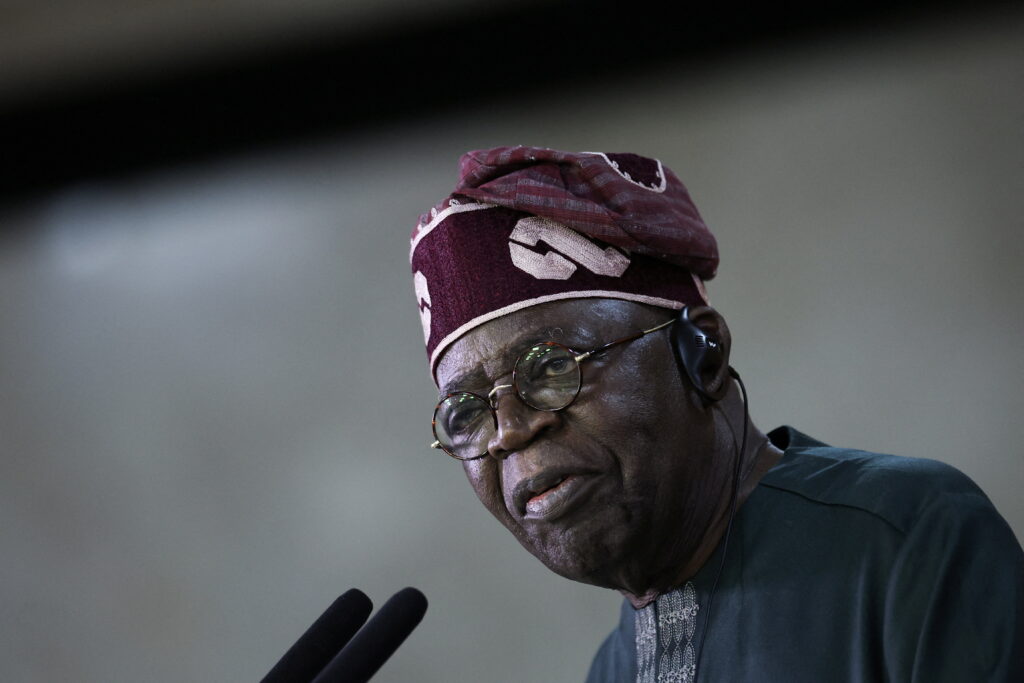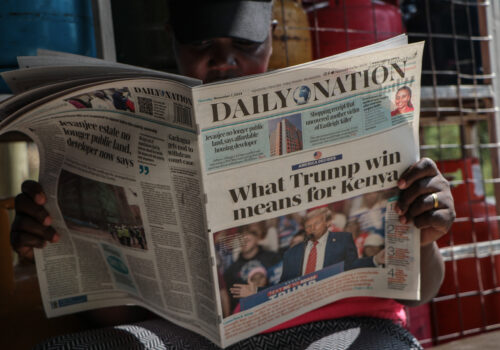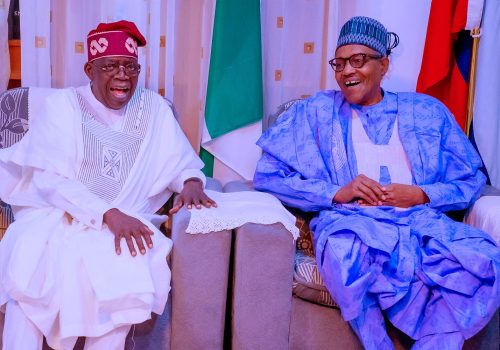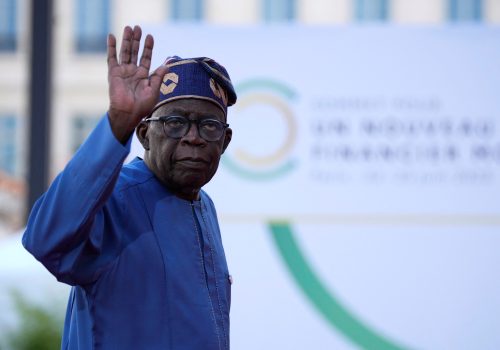US-Nigeria relations have taken a sharp turn in recent days, indicating the widening gap between Abuja and Washington. On October 31, US President Donald Trump announced the redesignation of Nigeria as a “Country of Particular Concern” (CPC) for severe violations of religious freedom. The next day, in a follow-up social media post, Trump threatened military action against Nigeria, as well as a full cutoff of US aid to the country, if its government “continues to allow the killing of Christians.”
For Nigerian President Bola Ahmed Tinubu, the designation and threat of military intervention couldn’t have come at a more politically fraught moment. With a population of more than 230 million people, Nigeria continues to grapple with inflation, a struggling currency, and widespread poverty despite recent reforms. With the CPC designation, Washington is questioning the government’s ability to protect its citizens from religiously motivated violence. The moment demands Nigeria to deliver a more coherent diplomatic posture toward the United States.
A relationship built on mutual interests
The US–Nigeria relationship has historically been one of pragmatic partnership. The United States is Nigeria’s largest foreign investor, with US investments concentrated in oil and gas, wholesale trade, and services. Bilateral trade surpassed thirteen billion dollars in 2024, and Nigeria ranks among the top African markets for US exports.
Washington also provides strategic security support, including military training, counterterrorism assistance, and limited arms sales to help Nigeria confront groups such as Boko Haram and the Islamic State West Africa Province, while also addressing piracy in the Gulf of Guinea. Nigeria, in turn, remains a strategic partner for US interests in West Africa, which faces overlapping crises of extremism, migration, and democratic backsliding. Under Tinubu, however, the relationship appears to be drifting—not through open hostility, but mutual disengagement.
A diplomatic drift
Since his inauguration in May 2023, Tinubu has not traveled to Washington and allowed a diplomatic vacuum to fester. In September 2023, Tinubu recalled all Nigerian ambassadors worldwide and still has yet to appoint permanent replacements. What’s more, he was conspicuously absent from Trump’s meeting in July with West African leaders. Tinubu’s distance from the White House may also reflect political caution on his part, following renewed reporting on his past in the United States, including his connection to a federal criminal case and questions about his academic records.
Although Tinubu appointed a handful of consuls-general and chargés d’affaires (including in Washington) earlier this year, Nigerian foreign policy experts note that these temporary measures fall far short of the representation expected of a country of Nigeria’s stature, and reports have detailed the poor state of Nigerian diplomatic missions. Officials in Abuja cite financial constraints for the delay in appointing ambassadors. Amid the dispute with the United States, Tinubu is now reportedly finalizing a list of ambassador nominees.
Tentative diplomacy
Tinubu’s contacts with the Trump administration appear to be limited. In April in Paris, he met for the first time with Massad Boulos, Trump’s senior advisor for Africa and a citizen of Nigeria among other countries. While that encounter signaled a tentative opening, there is no indication of any ongoing back-channel relationship.
Boulos himself recently stirred debate in Nigeria when he remarked publicly that it is not only Christians who are victims of violence in Nigeria. The comment diverged from claims made by Christian advocacy groups that a genocide against Christians is taking place in Nigeria, a claim that resonates with segments of Trump’s political base. Boulos’s attempt to bring some nuance to the conversation appears to have done little to shift Washington’s broader perception that Abuja has not done enough to contain extremist violence or to demonstrate accountability for religiously targeted attacks.
But even before the religious freedom debate, there was friction on other fronts. Earlier in July, Nigeria’s government vowed to resist pressure from the Trump administration to accept deportees from Venezuela and other third countries.
What the CPC designation means for Nigeria
Being named a “Country of Particular Concern” is not merely symbolic. Under the International Religious Freedom Act of 1998 (IRFA), it places a country in the category of states that have “engaged in or tolerated particularly severe violations of religious freedom.” It can trigger diplomatic censure and, in some cases, targeted sanctions or aid restrictions, unless the president grants a waiver for national-security reasons.
Nigeria was first placed on the CPC list in 2020, during the first Trump administration, but was removed in 2021 by the Biden administration ahead of then Secretary of State Antony Blinken’s visit to Nigeria. The decision drew sharp criticism from the US Commission on International Religious Freedom (USCIRF), an independent body created by the IRFA. And last month, US Senator Ted Cruz (R-TX) introduced a bill calling for the CPC designation and the imposition of sanctions on Nigeria, including measures against Nigerian officials who “implement or support blasphemy and Sharia laws.” The redesignation, therefore, represents a policy reversal and a warning that Washington expects progress on religious-freedom protections or further consequences may follow.
At a crossroads
Tinubu, himself a Muslim, faces a delicate balancing act in a country roughly evenly divided between Muslims and Christians. Ahead of the 2023 presidential election, his selection of a Muslim vice presidential running mate from Nigeria’s northeast Borno state drew opposition from voters who considered the move at odds with Nigeria’s religious diversity. While his administration has vigorously rejected the notion of a “Christian genocide” in Nigeria—arguing that that framing does not reflect the true situation in the country—terrorist organizations have targeted churches, kidnapped clergy, and committed massacres in Christian farming communities. Washington’s renewed CPC designation challenges Nigeria’s leadership to confront Christian-targeted extremist violence more decisively.
For Tinubu, who has already clinched his party’s endorsement for re-election in 2027, his approach to this issue will define his foreign-policy credibility and political legacy. Domestically, as a politician from Nigeria’s predominantly Christian south, he must avoid alienating Nigeria’s predominantly Muslim north or feeding perceptions of Western bias in framing the country’s security crisis. Internationally, he must reassure partners that his government is committed to defending pluralism and prosecuting those responsible for faith-based atrocities.
The cost of inaction could be severe. Nigeria’s CPC status could complicate security cooperation—including military training and intelligence sharing—and add to concerns over the foreign investment environment unless Abuja demonstrates measurable improvements.
More profoundly, the designation exposes the fragility of Nigeria’s social contract. When Nigeria gained independence in 1960, its founders envisioned a country where ethnic and religious pluralism would coexist. Decades later, deepening religious and ethnic polarization poses a threat to that vision. Unless the Tinubu administration tackles corruption, poverty, and insecurity, any diplomatic fallout will be secondary to the domestic unraveling already underway.
A path forward
Restoring confidence will require concrete steps. Tinubu should:
- Reassert Nigeria’s diplomatic presence in Washington. Nigeria, as the world’s largest Black democracy, should project the diplomatic stature befitting its status on the world stage. The absence of robust diplomatic representation has left Nigeria increasingly vulnerable in Washington. The country has been hit hard by the new US tariff policy and could face further repercussions if the Trump administration expands its travel ban. This diplomatic gap is particularly striking given that Nigeria is the most common country of origin for African immigrants to the United States and those of African descent. Restoring a full ambassadorial presence in Washington can help send a message that Abuja has the will and resources to revitalize US–Nigeria relations. A credible diplomat with bipartisan connections in Washington could help reset the tone of engagement and re-establish trust.
- Open Nigeria’s doors to transparency and external scrutiny. It is not enough for the government to dismiss claims of a “Christian genocide.” Nigeria must cultivate an atmosphere of transparency that allows external observers to assess the facts firsthand. That should include inviting assessments by USCIRF or multilateral partners such as the United Nations or the African Union, along with greater access for journalists, civil society organizations, and independent researchers.
- Restore accountability in Nigeria’s fight against sectarian violence. Many Nigerians have grown accustomed to government complacency and the impunity that has characterized the violence across parts of Nigeria. Abuja’s credibility at home and abroad depends on visible consequences for perpetrators of sectarian violence—regardless of faith or region—and protection of witnesses who can testify to atrocities. That starts with better funding for security forces. Nigeria’s fight against insecurity may remain a myth if its police force remains underfunded and ranked among the lowest globally in capacity and morale. The government must also address growing concerns that former Boko Haram fighters and other defectors are evading rehabilitation and reintegrating directly into local communities. Compensating victims, whether Christians or Muslims, while empowering them to rebuild and resettle, could further signal that the state values every Nigerian life equally.
- Prioritize the welfare of Nigerians and address the root causes of violence. Nigeria’s minimum wage stands at 70,000 naira (about $48) per month—one of the lowest in Africa—while legislators, among the highest paid globally, earn between $150,000 and $190,000 annually, and there has been a recent push for increased pay. This disparity reflects a failure to align the cost of governance with the realities of most citizens. Long-term security will depend on tackling the roots of instability: poverty, youth unemployment, and social exclusion. With eighty million Nigerian youths out of work, the government must expand education, job creation, and rural development, especially in conflict-prone areas. Prioritizing these domestic investments would signal commitment to reform and help shift Nigeria’s global image from a country that manages crises to one that builds resilience.
For its part, the United States should moderate its pressure with an open door for engagement. Blanket condemnation risks provoking defensiveness in Abuja. Constructive partnership could yield better results. US policy should aim not merely to punish but to strengthen Nigeria’s capacity to protect its own citizens. Without a doubt, Nigeria’s renewed CPC designation is a diplomatic alarm bell, but it need not herald a breakdown in US–Nigeria relations or escalate into a wider geopolitical standoff, with Beijing already warning against US “interference” or “use of force.” As an African adage cautions, “when two elephants fight, it is the grass that suffers”—and in this case, ordinary Nigerians stand to bear the cost of great-power rivalry in the region. The current imbroglio could instead become an inflection point, prompting both governments to re-evaluate their priorities and restore the principled cooperation that once defined their ties.
But the ball is now in Tinubu’s court. With Nigeria on the brink of a major diplomatic crisis with one of its most important strategic partners, he must confront extremist violence without inflaming sectarian divides, rebuild diplomatic trust with Washington, and prove that Nigeria’s diversity is its strength, not its death knell. If he can navigate that delicate balance, Nigeria might yet emerge from this moment of scrutiny stronger, more credible, more prosperous, and more united.
Ohimai Amaize is a Nigerian journalist and the senior editor for social media strategy and audience engagement at the Atlantic Council.
Further reading
Fri, Dec 13, 2024
What Trump’s next presidency will mean for Africa
AfricaSource By Rama Yade
Reading between the lines of President-elect Donald Trump's campaign promises—and looking back on the president-elect’s first administration—reveals that Africa can expect substantial changes from the United States.
Wed, Mar 1, 2023
What’s in store for Nigeria after a messy election
Fast Thinking By
Why was the election so rocky, and what should the new president’s priorities be? Our experts share their insights.
Tue, Aug 1, 2023
There are high expectations for Nigeria’s new president. Here’s how he can fulfill them.
AfricaSource By
Bola Ahmed Tinubu does have an opportunity to set up Nigeria as an economic powerhouse and African superpower. Here's how he can seize it.
Image: Nigeria's President Bola Tinubu speaks during a joint press statement with Brazil's President Luiz Inacio Lula da Silva (not pictured), at the Planalto Palace, in Brasilia, Brazil, August 25, 2025. Reuters/Adriano Machado.




